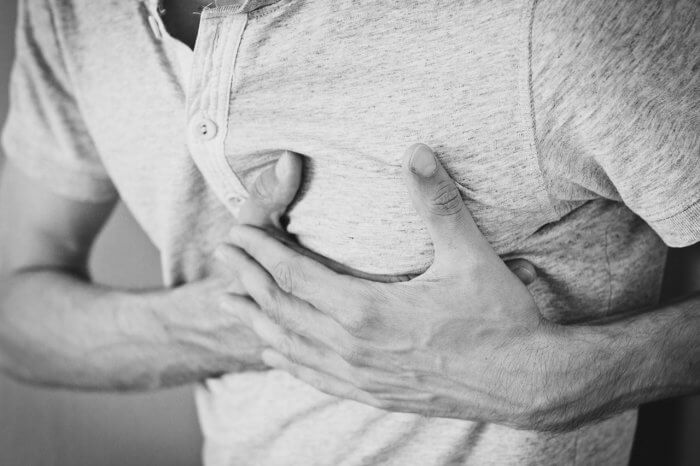
It is far from uncommon for people of all ages to experience chest pain. These can happen to all sorts of people both young and old, and they can very often be put down to indigestion or muscular strain.
Not all chest pains are the same and some can affect people in very different ways. However, sometimes what can be a seemingly innocent chest pain can turn out to be something that needs investigation. Read on to find out which chest pain symptoms should lead you to alert your doctor.
Is it Your Heart?
There are numerous ways in which chest pain can be caused by problems with the heart and we will deal with the most common ones here.
Angina can present symptoms typically the following exercise or by smoking, among other things and include tightness or pressure in the chest which can radiate into the back, neck, jaw or arms. You can also experience dizziness, nausea or shortness of breath. If you experience chest pain symptoms like these you should certainly see your doctor as soon as possible. These could also be symptoms of a heart attack.
Pericarditis is caused by inflammation in the tissues around the heart and can cause a sharp, stabbing type of pain which may become worse when lying flat, leaning forward or taking deep breaths.
Coronary Artery Disease in its early stages can have symptoms which are fairly minor or generalized such as fatigue, shortness of breath or a feeling of discomfort. They can even come and go leading the sufferer to assume that nothing much is wrong. However, this is one of the conditions that must be investigated by a specialist before it progresses from vague chest pain symptoms into a more serious and life-threatening issue.
Other Conditions Which Can Cause Chest Pain
Problems with the lungs such as pneumonia, pleurisy and, more seriously pulmonary embolism, can also present chest pain symptoms. These can range from a dull discomfort to a quite sharp pain especially on breathing in. Severe indigestion and acid reflux can cause chest pain symptoms which are so severe that patients can frequently wonder whether they are having a heart attack.
How Do You Know When it’s an Emergency?
If you are at all worried about your chest pain then don’t leave things to chance, get it checked out as soon as possible. However, chest pain is more likely to merit immediate investigation where there are certain risk factors such as:
- You have a strong family history of heart disease
- You are 40 years old or more and you have more than one risk factor like family history, obesity, raised cholesterol, diabetes or you are a smoker
- Your pain is described as a squeezing, heavy or crushing pain radiating into the jaw, shoulders or arms and is accompanied by nausea, dizziness, fainting, and sweating
- Your pain is more severe than previously or is new and more severe than any you have experienced and/or it gets progressively worse
- Along with your chest pain, you experience a feeling of extreme worry that something is wrong, often described as a feeling of impending doom
The above examples are not exhaustive and because chest pain can be so different from one person to the next you should not assume that there is nothing to worry about.
Too many people are reluctant to see a doctor with chest pain, preferring instead to ride out any pain or discomfort. However, that pain which you hope and assume is nothing may turn out to be something serious so never be afraid to call your doctor or dial 999. Early intervention can be a life-saver.

